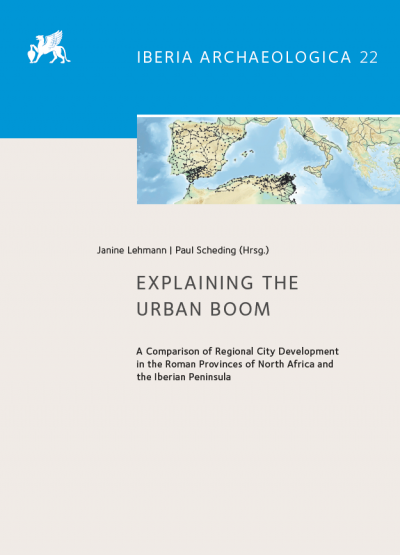North Africa and the Iberian Peninsula were both key geographical regions in the Roman world. Their resources, elites, and culture were important factors in the development and growth of the Roman empire. Both regions experienced an Urban Boom in the imperial period and, as a result, the modern countries of Spain, Portugal, Morocco, Algeria, Tunisia, and Libya all possess remains of significant numbers of settlements with impressively monumentalized cityscapes dating back to the Roman period. While this process of monumentalization took place in two very different parts of the empire, and peaked in prosperity at different times, some striking similarities in their paths to urban development can still be observed.
This volume is the result of an international workshop held at the German Archaeological Institute in Madrid in 2018. The workshop brought together historians, archaeologists, and epigraphists, asking them to reflect on the causal factors behind the various phenomena that constitute the Urban Boom in each of these regions. The chapters offered here constitute a significant contribution to the study of ancient urbanism, identifying some of the key elements that triggered urban development in the Roman empire. The variety of studies presented not only demonstrates the complexities involved in the study of the processes behind ancient urbanization – from the level of individual cities to broader settlement systems – it also sharpens our view of the urban achievements that were specific to the Roman period.
Copyright (c) 2023 Deutsches Archäologisches Institut
Kapitel

No comments:
Post a Comment